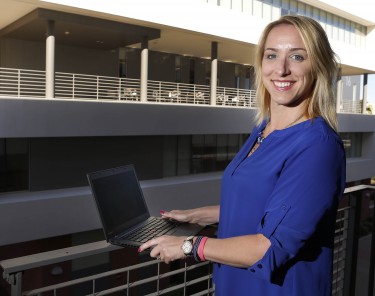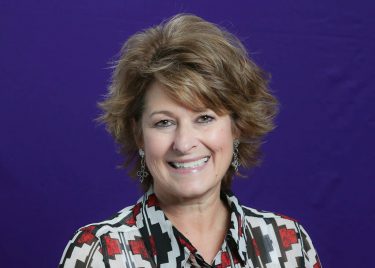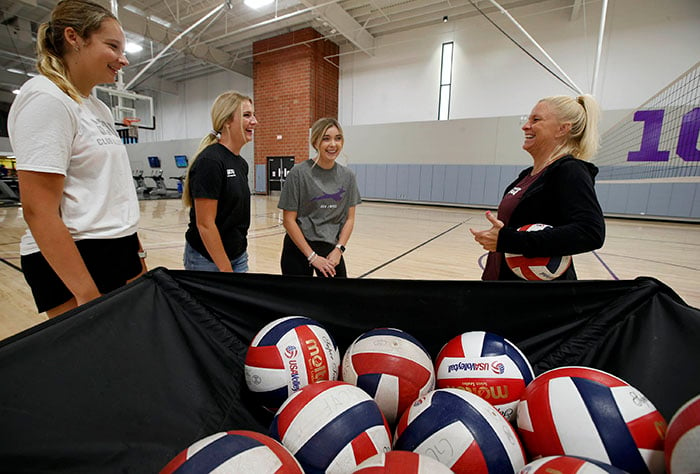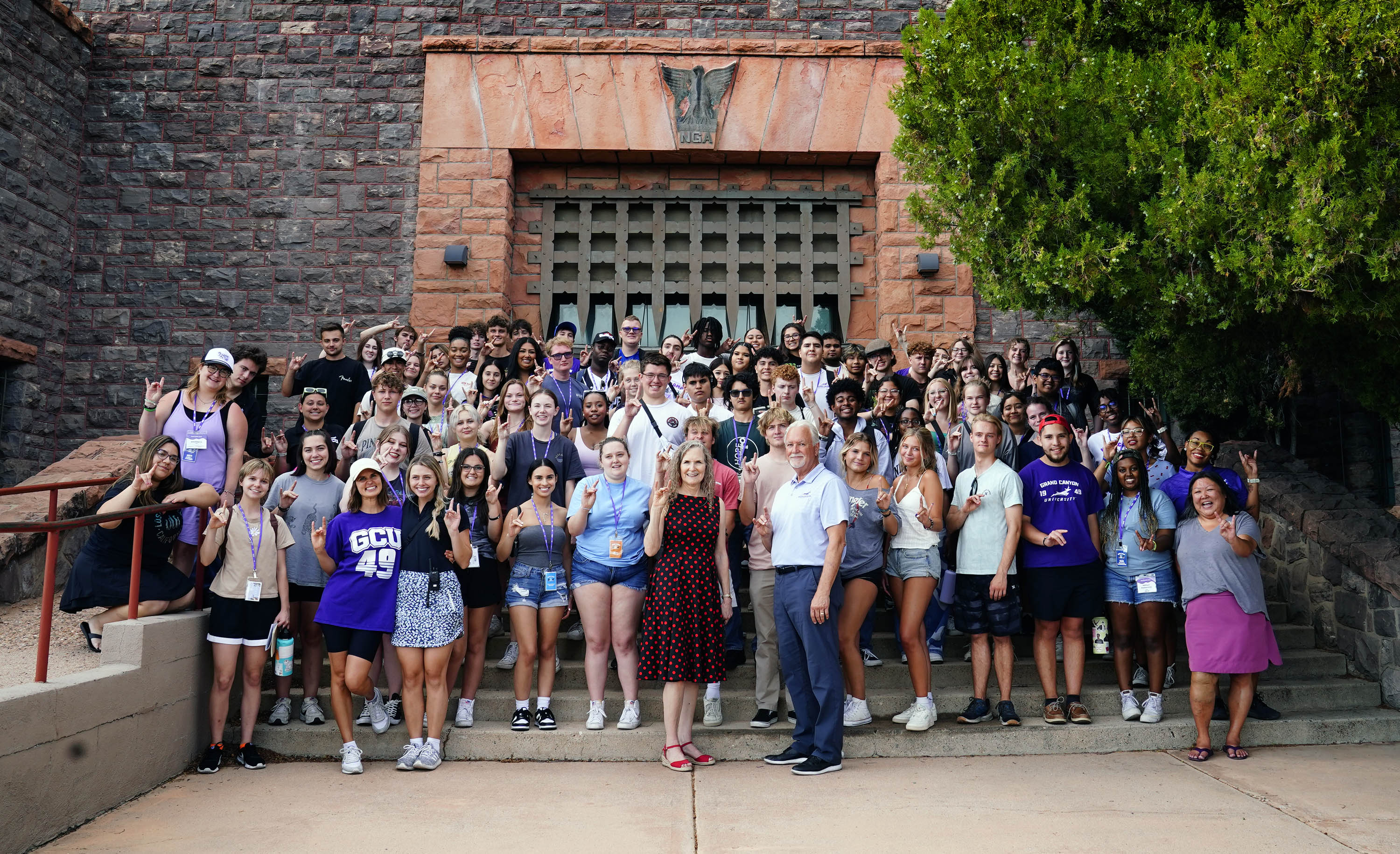By Laurie Merrill
GCU News Bureau
Dr. Heather Monthie, assistant dean and associate professor of Grand Canyon University’s College of Science, Engineering and Technology (CSET), was in middle school when she discovered Oregon Trail, the role-playing computer game about a wagon leader guiding a party of settlers.
She was hooked and decided she wanted to learn to develop her own computer game. She enrolled in a summer school program that taught BASIC, a programming language that allowed her to achieve this.
“It challenged me,” Monthie said. “It’s something that allowed me to think through the process.”
Monthie’s love of computers and problem solving has only grown over time and was a factor in her choosing Information Technology (IT) as her career more than 26 years ago.
Today, Monthie is one of several key figures at the forefront of a new GCU partnership with Science Foundation AZ, which has been selected as a Code.org Professional Learning Partner.

The partnership’s goal: to upend the status quo and improve a troubling statistic — only one in four schools offers computer science education. Code.org, perhaps best known for its successful Hour of Code, supports the idea of universally requiring computer science as part of the K-12 curriculum, alongside English, history, math and science.
“GCU shares the vision of Code.org that computer science is for every student and every school,” said Kathryn Scott, GCU’s director of Strategic Educational Alliances. “We want this in Arizona ─ especially for the under-represented and for girls.”
Despite the technological acumen of women such as Monthie, fewer female students overall embrace science and math.
“We want them to know it’s not a scary subject,” Monthie said. “It’s fun and it’s creative. It’s a way to build something, invent something. Everything we use, someone had to code in. Somebody had to develop everything we use today. Somebody had to make it that way.”
Scott is the partnership's professional program manager, and Monthie was named Code.org facilitator of AP Science Principles curriculum. The third key participant in the Arizona agreement is Linda Coyle, director of education for Science Foundation Arizona and the Arizona STEM network.
Today, Coyle and Scott are among regional Code.org partnership members scheduled to appear at the White House Office of Science and Technology Policy for a “Computer Science Education — Regional Partner Discussion.”
“We are a team that recognizes computer science professional development in the state of Arizona,” Scott said. “We are not only educating, but we are also advocating. We are becoming big advocates for Arizona.”
Training the trainers
Through workshops and courses, the partnership gives K-12 teachers tools and support for teaching students the skills and knowledge they need to be successful.
One of GCU’s key missions it to provide more education in science, technology, engineering and math (STEM), not only to students in the University but also to K-12 children throughout Arizona. The Code.org partnership is just one of many STEM programs that GCU is endorsing or spearheading as it attempts to help bridge the gap between the rapidly multiplying number of high-tech job opportunities and the inadequate number of graduates trained to fill them.
For example, GCU’s Strategic Educational Alliances department recently became a driving force behind the Chief Science Officers (CSO) program in Arizona’s high schools and middle schools.
This school year, in her AP Science Principles facilitator role, Monthie has been conducting professional training workshops in how to teach computer science to 10 high school teachers from across Arizona. They hail from such school districts as Tucson, Sierra Vista, Flagstaff, Phoenix and Paradise Valley, Monthie said.
“The teachers are very excited about it,” Monthie said, noting that she is the only such facilitator in Arizona.

The training is also offered to:
- Phoenix area-elementary school teachers: GCU offers one-day Computer Science Fundamentals Workshops to help educators introduce computer science basics to the earliest learners. To register, visit http://www.gcu.edu/codeorg.
- Elementary school teachers outside the phoenix area: Code.org facilitators can bring the same workshop to elementary school teachers in groups of 25 of more, Coyle said. “We have 28 teachers from the Prescott school districts taking our Code.org Fundamentals training,” Coyle said.
- Middle School teachers: This spring, Arizona middle school teachers can participate in Computer Science Discoveries, an introductory course aimed at empowering students and preparing them for high school.
“The Code.org curriculum creates a ‘Pathway of Computer Science’ from elementary, to middle school, to high school and all the way up to higher education and, specifically, GCU and our engineering and science programs,” Scott said.
The earlier students begin this kind of education, the more proficient they will be later on, Monthie said. Children have a keen interest in computer science, many listing it as a top subject when it is offered.
“GCU is focused on improving the STEM fields at all levels,” Monthie said. “The idea is to spark students’ interest earlier to help fill some of the growing employment needs in the computer science and IT Fields.”
Contact Laurie Merrill at (602) 639-6511 or laurie.merrill@gcu.edu.










